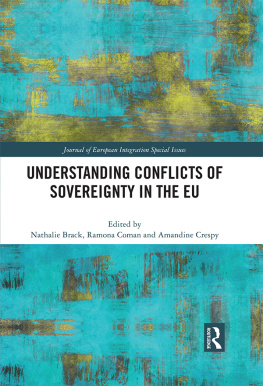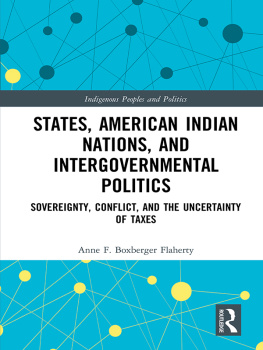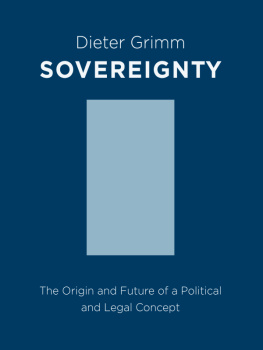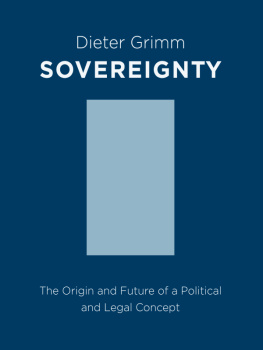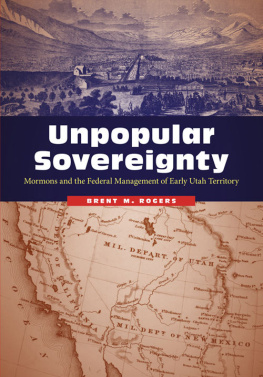Published in 2001 by
Routledge
A member of the Taylor & Francis Group
270 Madison Ave,
New York NY 10016
Transferred to Digital Printing 2009
Copyright 2001 by Thurman Lee Hester, Jr.
All rights reserved. No part of this book may be reprinted or reproduced or utilized in any form or by any electronic, mechanical, or other means, now known or hereafter invented, including photocopying and recording, or in any information storage or retrieval system, without written permission from the publishers.
Library of Congress Cataloging-in-Publication Data is available from the Library of Congress.
0-8153-4023-0
Publishers Note
The publisher has gone to great lengths to ensure the quality of this reprint but points out that some imperfections in the original may be apparent.
Foreword
Chief Gregory Pyle of the Choctaw Nation of Oklahoma
During the past 400 years, many groups have tried to control the Indian people. The United States Government has been regulating us for most of the past 200 years. During these centuries, at places like Wheelock Academy, we were told we shouldnt bespeaking our Native language, and that we should give up our culture. The Federal Government sent Indians all over the country under the Relocation Act. After generations of Federal control, in 1971, the Five Tribes were finally allowed to elect their own leaders again.
Since that time, the Choctaw Nation of Oklahoma has been evolving and progressing. Though weve had a constitutional form of government for about 100 years, weve reformed our constitution to meet new challenges. As of April, 2000, the tribe handles about $225 million a year. 70% of this tremendous budget is from our businesses, and only about 30% is from federal grants. We are moving away from the forced dependency of the past more and more every day.
It is wonderful to see people striving to continue our heritage and language. The Choctaw Nation of Oklahoma has put tribal monies into a teaching program so that everyone who is interested in learning the Choctaw language will have an opportunity to do so. In addition to classes on a face-to-face basis, the tribe has sponsored satellite classes and are also offering classes on the internet. Opporutnities like the Language Program all started 29 years ago when the tribes were once more allowed to elect their own leaders and run their own government.
Tribal sovereignty is the life blood of American Indians ability to maintain our culture, heritage, and right of self-determination. For many years, our people were on the bottom rung of the social and economic ladder in the country. After the passage of PL 93-638, Indian Self-Determination Act, the U.S. policy changed to one of tribal self-determination and economic development. American Indian tribes were encouraged to become self-sufficient, free of federal financial dependency. Needless to say, Indian tribes welcomed this new policy and embraced it with great enthusiasm. Every dollar Indian Tribes make and put back into assistance for our citizens is a dollar less we are dependent on the Federal or State Government. If tribes were not considered sovereign entities and not recipients of federal funding, the burden of responsibility of care for these citizens would fall back on the Federal or State Government.
We have worked hard to find ways to generate revenues to finance this goal of financial independence. Unlike local, state and federal governments, Indian tribes have little or no tax base or ways to raise revenues as other conventional governments have.
We began to look at commercial endeavors, such as hotels, resorts, truck stops, manufacturing, and real estate rental properties such as shopping centers. Sovereignty has been central to these efforts. Unfortunately, sovereignty and particularly sovereign immunity are among the most divisive issues that face Congress each year. Opinions on this issue run very strong on both sides.
The sovereignty of tribal nations can be a positive force for all partiesIndian and non-Indian alike when utilized appropriately. The Choctaw Nation conducts business with our non-Indian business partners and with the State of Oklahoma while preserving our sovereign immunity. For many years we could not agree with our state government in Oklahoma about state taxation practices. It was a very difficult situation, both sides were adamant. But in the end, we were able to put aside these differences and arrive at agreements which work to everyones benefit. And we did it without sacrificing our immunity. In fact, I submit that without this sovereignty, we may have never been able to reach compacts with the state in fuel and tobacco taxation.
These compacts were not easy. There were endless disputes, roadblocks, and land mines which could have blown up in our faces. Negotiations were tough and sometimes downright contentious. But in the end, our determination on both sides to come to an agreement and put these issues behind us prevailed. Both of our governments could then return to our most important duty of providing for the general welfare of our citizens.
We must provide jobs, promote education and care for those of our citizens who cannot care for themselves. These and other serious tribal obligations illustrate why Indian tribes engaging in commercial activities are not like private corporations or other businesses. We engage in business activities to provide revenues to operate our governments. Our profits are not used to make individuals wealthy or to compensate shareholders. We use our profits for such basic things as educating our children, improving our peoples healthcare, providing safe and decent housing and other causes things which most Americans take for granted. These are the goals and purposes of Choctaw tribal enterprises and tribal governments throughout the United States.
Because of our gaming revenues, economic development ventures and money earned from our Fuel Tax Compact with the State of Oklahoma, the Choctaw Nation of Oklahoma has begun tribally funded programs to provide eyeglasses, dentures, hearing aids and other medical equipment needs to our tribal members. We have been able to provide funds for Boys & Girls Clubs in several counties and able to partner with local public schools in providing after-school recreation programs for youth in socially disadvantaged areas.
This is of utmost importance in a state with one of the highest teen pregnancy rates in the nation. By providing structured, supervised activities for young people in the afternoons and on weekends we will have one of the greatest drug prevention programs possible. These program are wonderful examples of how tribal sovereignty benefits both the American Indian and non-Indian communities. By sharing state, federal, private and tribal resources, we constructed an American Indian Center at Eastern Oklahoma State College in Latimer County, which will reduce the dropout rate by providing counseling and academic tutorial assistance for our Indian students. The Choctaw Nation contributed $1.2 million of tribal funds to this project.
The Choctaw Nation built a new hospital, not by waiting for the federal government to build it for us but by utilizing existing IHS dollars, fuel tax dollars, gaming dollars and tribal economic development dollars. By the Choctaw Nation partnering with agencies such as Little Dixie Community Action Agency and by utilizing the services of both, we are able to provide more job opportunities for everyone in the community. Please understand, my priority is the Choctaw people, but I want to stress that when we succeed in business, everyone benefits. Our businesses provide jobs, additional income for the area, additional tax dollars for the community and allow opportunities for retail sales. Gaming and travel plazas have been successful ventures for the Choctaw Nation. These ventures have provided a tremendous means to support additional businesses, social programs, education programs and health programs of the Choctaw Nation. I would like to point out that tribal business revenues allow between 1,300 and 1,500 higher education scholarships to be awarded to Choctaw youth. This is self-determination at its best. Since we were discovered about 500 years ago, there have been many attempts to do away with Indian tribes. The Self-Determination Act of the 1970s marked a turning point for the tribes to regain their governments. The re-recognition of the Indian sovereignty under Self-Determination and later acts is not only beneficial to all involved, but it is simple justice as this book shows.



